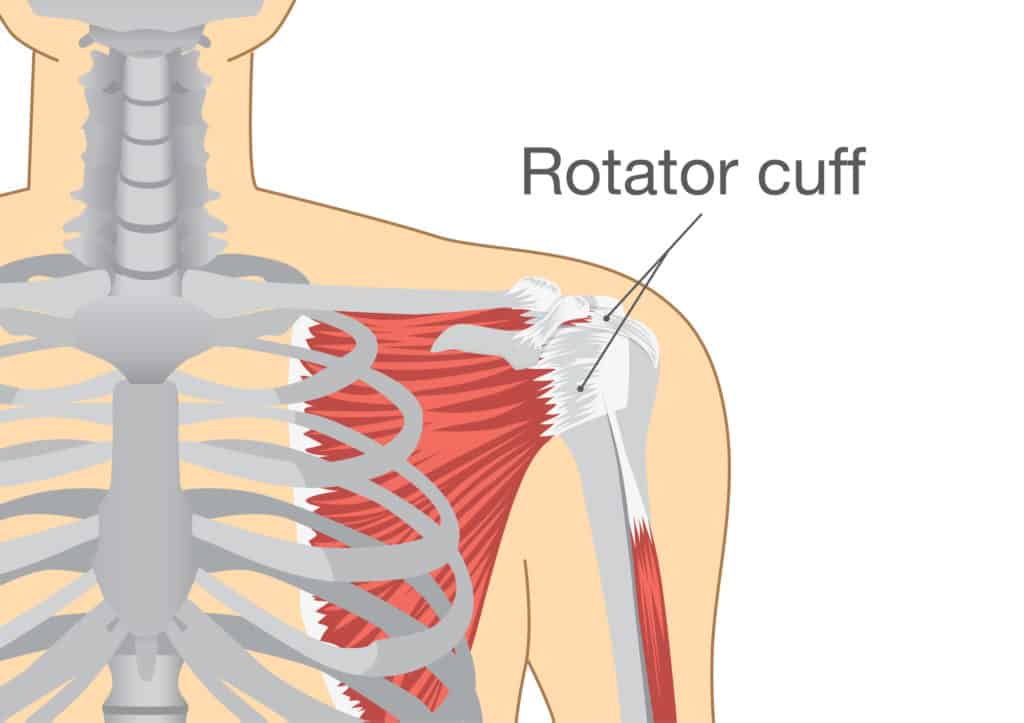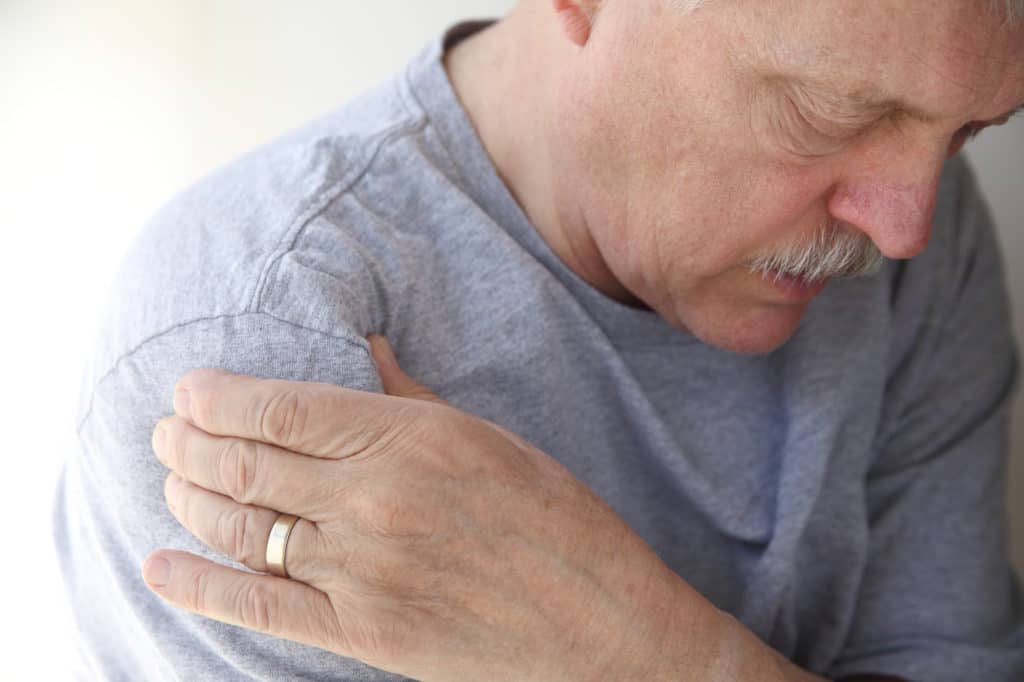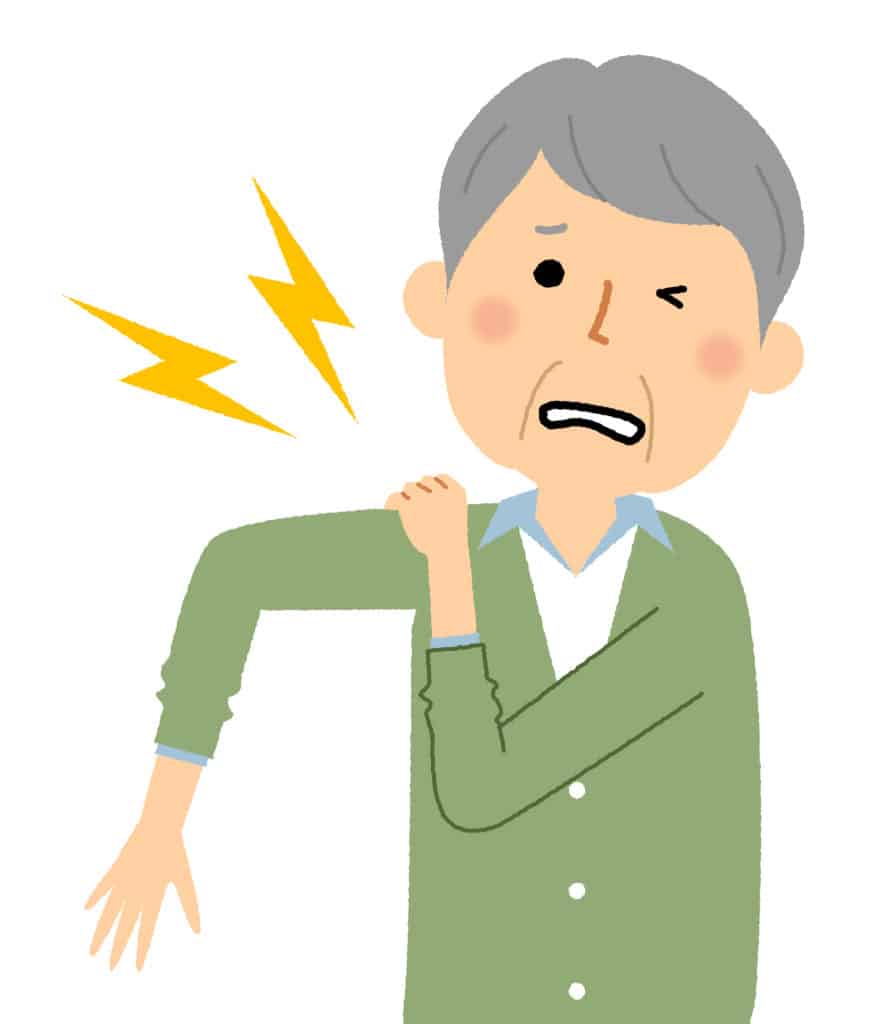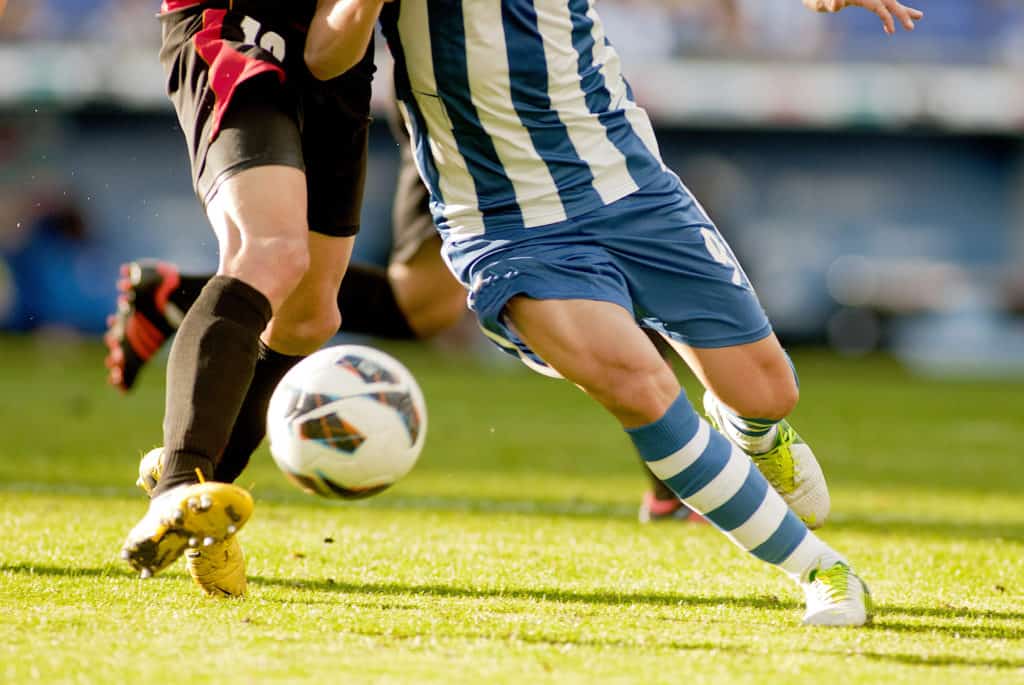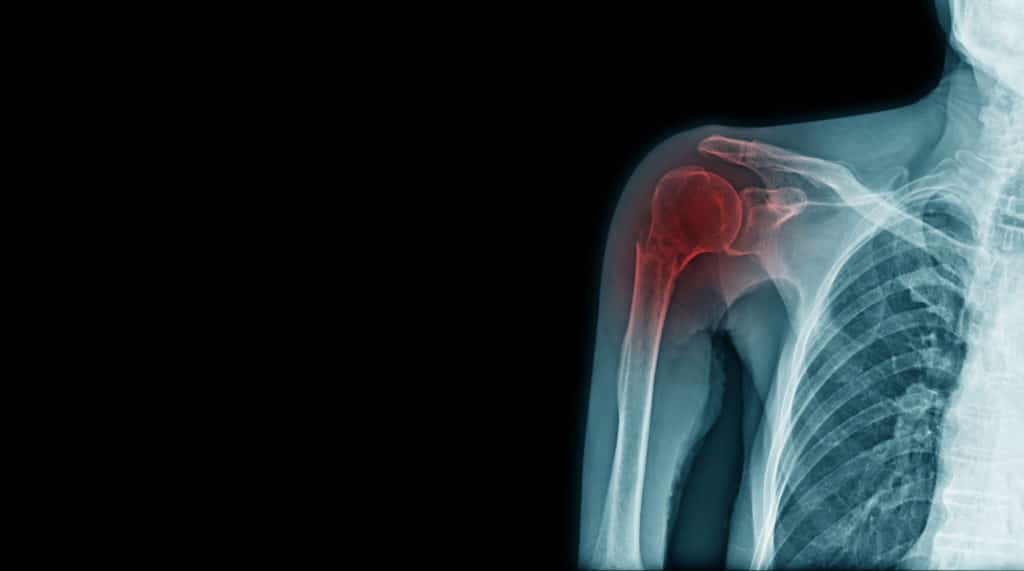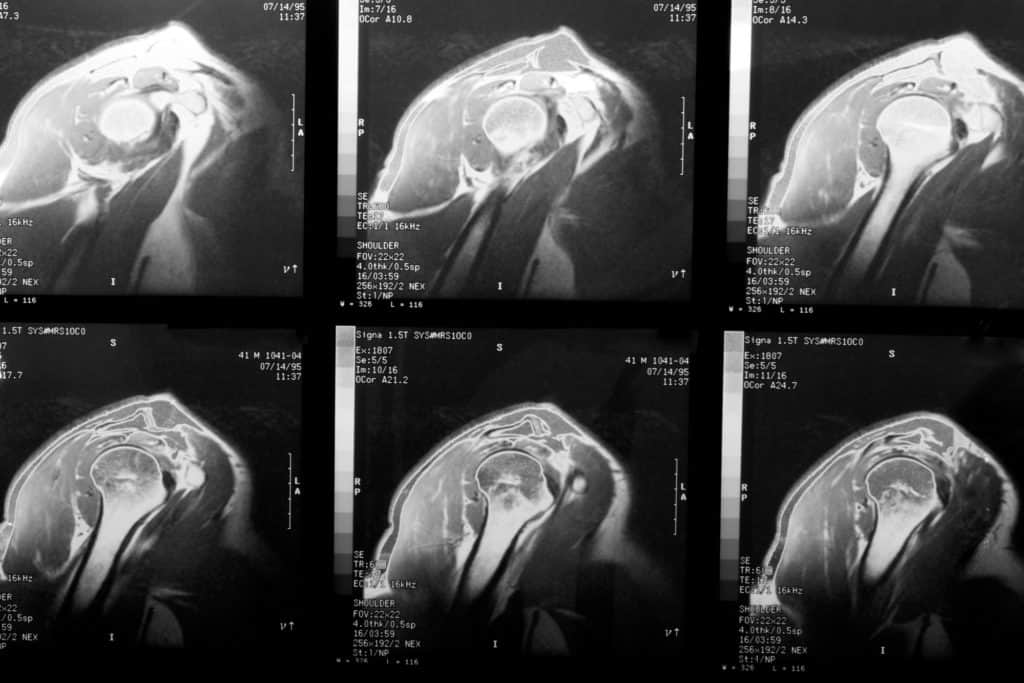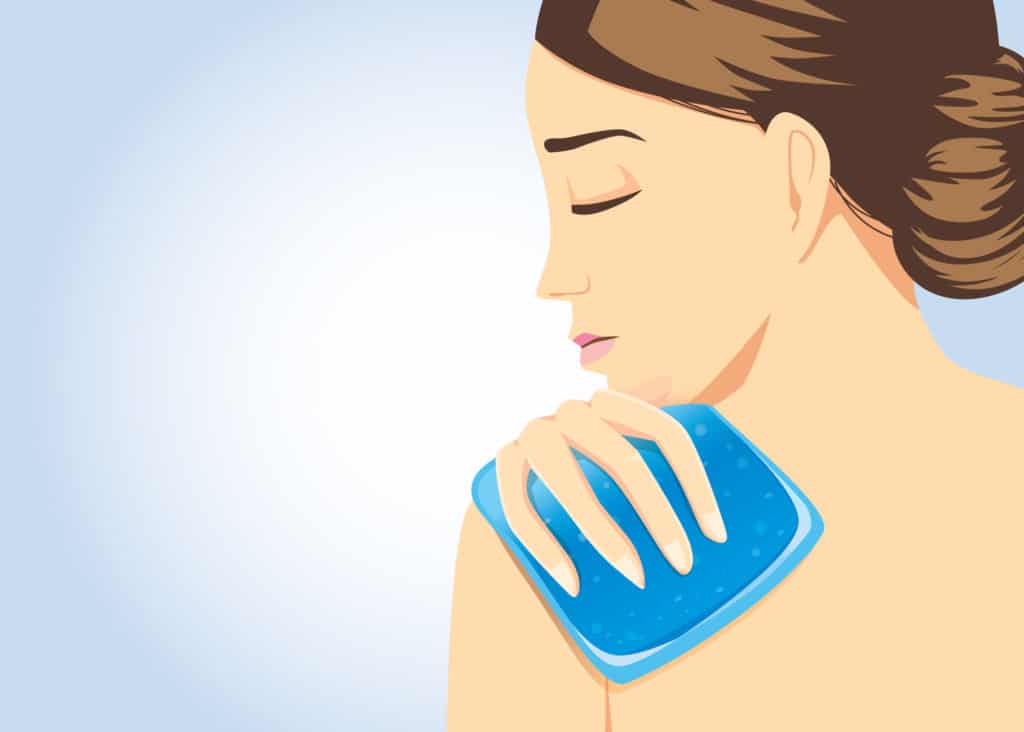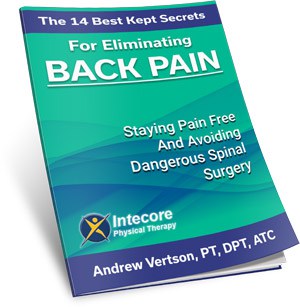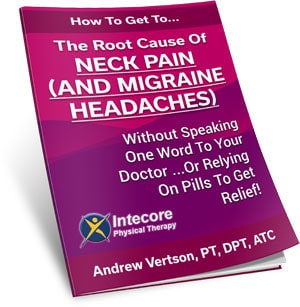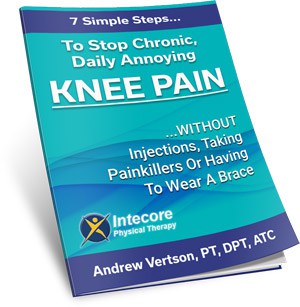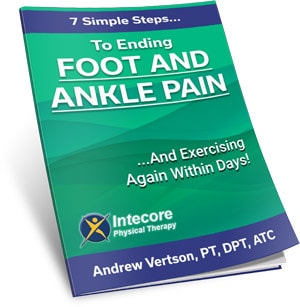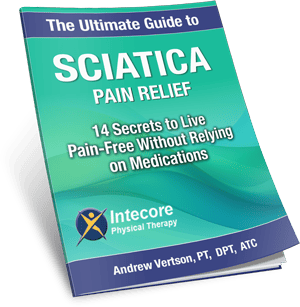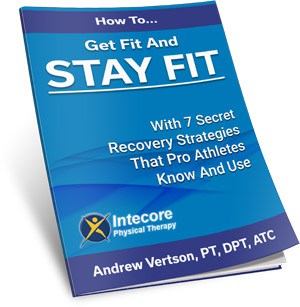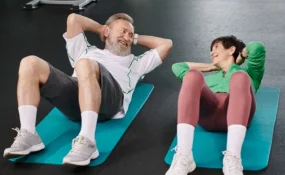Has your doctor told you that you have a rotator cuff injury?
Confused about what to do next?
Let us explain.
What Is The Rotator Cuff?
The rotator cuff is a cluster of tendons and muscles surrounding the joint of the shoulder. It connects and keeps the bone of the upper arm firmly within the shoulder socket. It’s what enables you to move your arms around.
When you injure your rotator cuff, it leads to a dull, painful sensation in and around the shoulder joint. The pain usually increases in severity when you move your arm away from the body – to the side or in front.
Rotator cuff injuries are more common as we age. They frequently occur in patients with a history of practical jobs that require repeated overhead movements like carpenters, painters, and other similar physically demanding trades.
You don’t usually need to stop working with a rotator cuff injury unless your work exacerbates your symptoms. You should be able to continue your daily activities, even though the symptoms can be uncomfortable. Instead, regular physical therapy can help improve the strength and flexibility of your shoulder muscles.
Is It My Rotator Cuff?
If you have a dull ache in the shoulder, it’s hard to know exactly what’s causing the pain. However, a doctor or physical therapist can evaluate you using a specific set of tests to find out whether it’s the rotator cuff that is causing your pain. This evaluation includes testing your arms and shoulders’ muscular strength, applying pressure on various shoulder areas, and putting your arms into different positions.
If they deem it necessary, your doctor might recommend additional medical tests, such as:
X-rays: While any tear in a rotator cuff is not visible in an X-ray, they can help determine whether other causes like arthritis or bone spurs are causing your symptoms.
MRI (Magnetic resonance imaging): An MRI scan uses strong magnets and radio waves to provide a detailed picture of the shoulder structure and what’s going on there.
Ultrasound: This imaging test involves the use of sound waves that create images of your shoulder structure, specifically tendons and soft tissues. It enables us to see the shoulder structure under movement. It also serves as an excellent comparative test between a healthy and injured shoulder.
What Are The Symptoms of A Rotator Cuff Injury?
Until you perform specific movements that involve the rotator cuff, these types of injuries don’t usually cause intense pain – although you may have a constant dull ache. But you may have some of the following symptoms:
– Difficulty getting to sleep and staying asleep
– A persistent dull and aching pain deep within the shoulder joint
– Your arm may feel weak
– You may find it difficult to reach behind your back
– Or difficulty brushing or combing your hair
When To See A Doctor
Occasionally, rotator cuff tears happen due to “blunt force trauma” in an accident. In these cases, it’s advisable to see a doctor, so they can evaluate your injury and decide whether you need immediate surgery to repair the damage. However, an extensive tear in the rotor cuff may be unfixable. In severe cases, joint or tendon replacement may be necessary.
If you have persistent pain for a week or more, we recommend you have your shoulder examined by a doctor. Similarly, if your arm feels weak after an accident or sporting injury, then you may also need to see a doctor.
What Causes Rotator Cuff Injuries?
Rotator Cuff injuries can result from degeneration of the tendon tissue over a long period, or they can occur acutely after severe shoulder injuries. In addition, going too heavy in the gym and repeatedly lifting big heavy weights overhead can also damage the tissues of the rotator cuff tendons.
Increased risk factors for Rotator Cuff Injuries
Certain things may raise your risk level for developing an injury to the rotator cuff. These include:
Overhead job-related activities: If you work in a job that requires repeated overhead activities like construction, decorating, and carpentry, you may be more likely to suffer from Rotator Cuff problems later in life.
Increased age: The older we get, the greater the risk of incurring injuries to the rotator cuff. We primarily find them in individuals over 60 years of age.
Genetic predisposition: Medical researchers are currently investigating a genetic predisposition in some families for rotator cuff injuries. It seems there is a link, but they’re not 100% sure why yet.
Why It’s Important To Get Rotator Cuff Injuries Treated

If your rotator cuff is injured and not treated in time, it leads to degeneration of the shoulder joint tissues and, potentially, osteoarthritis of the shoulder. It may also lead to a permanent loss of mobility in your arm.
While keeping the shoulder in a rested state is essential for the first stage of recovery and healing. Having it immobilized for an extended period can thicken the connective tissue and result in a frozen shoulder.
Sometimes called adhesive capsulitis, frozen shoulder is a painful and often debilitating condition that does exactly what it says on the tin. It freezes the shoulder, so it becomes so tight that it’s difficult to move at all.
How To Prevent Rotator Cuff Injuries
If you run the risk of this type of injury because of your job, sports, or hobbies, or you have suffered from an injury to the shoulder before, we recommend seeing a physical therapist who can teach you exercises to keep your shoulder joint flexible, mobile, and healthy.
While most of us focus on the all-important glutes, pecs, and abs in the gym, if you want to avoid shoulder problems and rotator cuff injuries, it’s essential to train the muscles of the back and shoulders to keep the area strong and protected from damage.
But the key is not to go too hard, too soon.
How To Treat A Rotator Cuff Injury
For minor injuries, conventional treatments, including cold and hot packs and physical therapy, will suffice. However, you might require surgery if your case is severe.
Injections: A doctor might suggest getting a steroid injection when conventional treatments have not been effective. This injection is given in the shoulder joint and is for very painful cases where daily activity is restricted. These are temporary solutions and should only be taken when all other options – like physical therapy – have been exhausted. They have side effects and may even delay the healing of the existing injury.
Physical Therapy: This is generally the first line of treatment prescribed by most doctors. There are specific therapeutic exercises that a physical therapist can prescribe for you that improve strength and flexibility in the rotator cuff. If you’ve had shoulder surgery, physical therapy is an integral part of the recovery process.
Surgical Options for Rotator Cuff Injuries
Tendon transfer: If one of the tendons in the rotator cuff is severely damaged or torn right off and reattachment to the arm bone is impossible. A replacement tendon might be an option.
Arthroscopic tendon repair involves inserting a mini camera (arthroscope) with other tools into the rotator cuff area through minor incisions to reattach the detached tendon. Open tendon repair is a better alternative in some instances. However, it involves a larger incision to reattach the severed tendon to the shoulder bone.
Shoulder replacement: This is used more as a last resort for serious rotator cuff injuries when surgeons cannot repair them in any other way. They create an artificial joint through a surgical process (reverse shoulder arthroplasty). They then insert the ball segment of the artificial joint into the blade of the shoulder and socket to the arm’s bone.
Alternative Home Treatments For Rotator Cuff Injuries
Generally, if the injury to your rotator cuff is very mild, any soreness and pain from this kind of injury dissipates independently, with minimal care. But you’ll need to avoid movements or strenuous activities and not lift heavy weights until the pain subsides.
Applying hot or cold packs can relieve pain and swelling in the area. Certain OTC (over-the-counter) pain medications like acetaminophen or Advil might also help. But as we mentioned earlier in the article, if your pain persists for more than a week, contact a physical therapist or your family physician for a complete evaluation.
Free Rotator Cuff Injury Consultation
If you’re not sure whether physical therapy is right for you, we offer all new patients the option to have a complimentary 20-minute consultation with one of our expert Physical Therapists. You can do this over the telephone or by booking a Discovery Visit at the clinic. There is no obligation to book treatment after the call either – that’s entirely up to you. Instead, we’ll chat with you about your current symptoms and recommend the best way forward.
- 7 Ways to Get Rid of Tension Headaches Naturally - July 1, 2025
- Why Are My Feet Swollen? Common Causes Explained - June 2, 2025
- What Is Restless Leg Syndrome? Symptoms, Causes, and Relief Options - May 5, 2025


